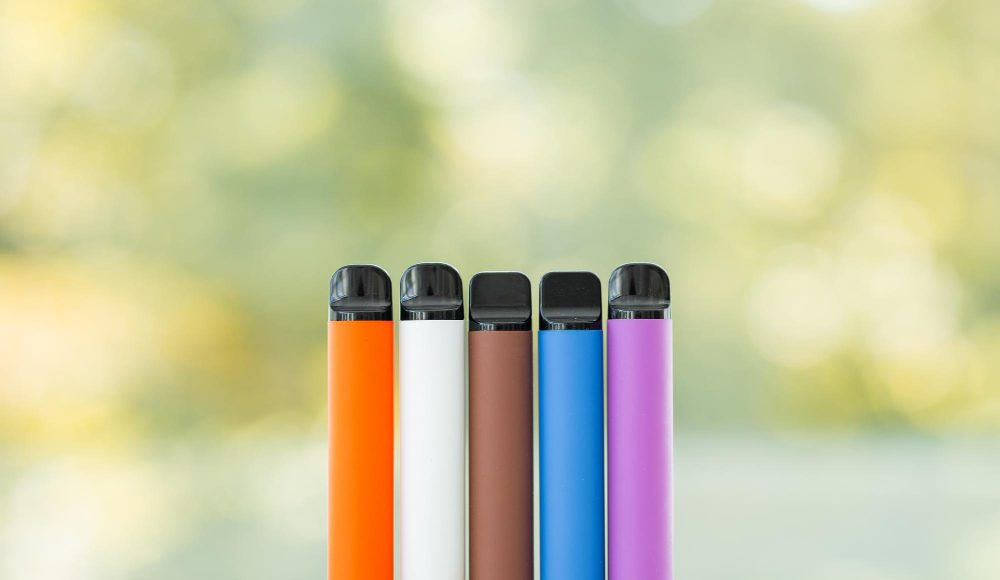While the negative impact of single-use vapes on the environment is undeniable, their benefits in helping even the most seasoned smokers try shifting to vaping products also cannot be dismissed.
Only days ago, Vaping Post outlined New Zealand’s progressive and successful smoking cessation strategy, one which is drawing the nation closer to achieving its smoke-free goal. However the World Vapers’ Alliance (WVA) has just expressed serious concerns over the country’s recent decision to ban disposable vaping products.
Announced by New Zealand’s Ministry of Health, the ban prohibits the production and sale of all non-rechargeable and non-refillable vapes, including single-use devices like pre-filled tanks, pods, and cartridges. WVA Policy Manager Alberto Gómez Hernández, emphasized that while preventing teenagers from using nicotine products is essential, strict age regulations are key to achieving this.

On the other hand, the proposed ban clearly overlooks the important role that disposable vapes play in helping adult smokers quit cigarettes. Banning disposables and pod systems for adults could harm public health and undermine the smoke-free progress achieved in recent years. The WVA is urging New Zealand’s health authorities to reconsider this prohibitionist stance and to continue supporting progressive tobacco harm reduction strategies that have been successful in lowering local smoking rates.
Across the Tasman Sea, Australia banned disposable vapes (whether they contain nicotine or not) in January 2024. In March 2024, this ban was extended to all vapes without an import licence. Naturally, local authorities citied public health protection as the reason behind the ban. However, real-world data has shown that the main outcome of these restrictions is just a burgeoning black market.
A wave of prohibition spreading across Europe
Similarly in Europe, Switzerland is set to ban the sale of disposables, locally known as ‘puff bars,’ after the government voted in favour of the ban on June 12th. Citing environmental and health concerns, this move follows the approval of a motion proposed by Green Party parliamentarian Christophe Clivaz, which passed in Switzerland’s House of Representatives with a vote of 122 to 63, and four abstentions.
Clivaz argued that ‘puff bars’ are especially appealing to young people because of their wide range of flavours and bright, eye-catching colours, contributing to their increasing popularity, adding that in 2022 alone, 10 million units were imported into Switzerland. He also stressed their environmental impact, noting that these devices often end up as litter, causing significant pollution and leading to millions in cleanup costs. On the health front, Clivaz raised concerns about the addictive nature of ‘puff bars’ and the still-uncertain long-term health effects associated with their use.
Despite these concerns, Interior Minister Elisabeth Baume-Schneider and the Federal Council, Switzerland’s executive body, opposed the motion, arguing that the ban might be premature. The final decision now rests with the Swiss Senate, which will determine whether the ban will be implemented or not.
In the UK, the newly elected Labour Government has unveiled plans to reintroduce the Tobacco and Vapes Bill, which includes a generational smoking ban along with stricter regulations on vapes and other nicotine products. However, there has been no mention of a plan to ban disposables yet, a measure which was previously introduced during Sunak’s term but left unfinished before he left office.
Other European countries moving forward with single use vapes’ bans are: Belgium which received EU approval to ban the products effective January 1, 2025; France with legislation approved by the National Assembly in December 2023, focusing on environmental and public health protection, particularly for young people; Poland, whose Minister of Health announced plans to draft a legislation banning disposables last March; and Northern Ireland which intends to ban the sale and supply of the products by April 2025.
A ban on disposable vapes in the UK could affect about 2.6 million people
Meanwhile recent research from UCL and King’s College London looking into the UK’s possible ban on disposables, reported that the measure could impact around 2.6 million people, potentially slowing the progress achieved in reducing smoking rates, while disproportionately affecting disadvantaged communities. This ban is seen as counterproductive because it restricts access to a key tool that helps smokers transition to safer alternatives.
Experts emphasize that disposable vapes are an accessible starting point for smokers looking to switch to safer nicotine alternatives, primarily due to their affordability and ease of use. Hence supporting this transition is vital for public health, especially when cigarettes, which are far more harmful, remain widely available. When viewed this way, such bans seem illogical, as they remove a product that is 95% safer while allowing the more dangerous option to stay on the market.
